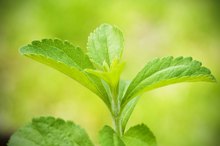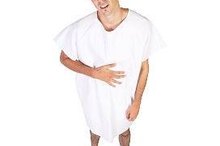What does fact checked mean?
At Healthfully, we strive to deliver objective content that is accurate and up-to-date. Our team periodically reviews articles in order to ensure content quality. The sources cited below consist of evidence from peer-reviewed journals, prominent medical organizations, academic associations, and government data.
- "Mutation Research;" The Comet Assay With 8 Mouse Organs: Results with 39 Currently Used Food Additives; Sasaki, et al.; 2002.
- "Mutation Research;" The Comet Assay With 8 Mouse Organs: Results with 39 Currently Used Food Additives; Sasaki, et al.; 2002.
The information contained on this site is for informational purposes only, and should not be used as a substitute for the advice of a professional health care provider. Please check with the appropriate physician regarding health questions and concerns. Although we strive to deliver accurate and up-to-date information, no guarantee to that effect is made.
Does Sucralose Have Digestive Side Effects?
Sucralose, a white crystalline powder made from sucrose, is used as a low-calorie sweetener according to Medline Plus 2. Sucralose tastes much sweeter than sucrose since it is 600 times sweeter. Sucralose is used in products which need a longer shelf life and in baked products. The use of sucralose can have digestive side effects.
Gut Bacteria
A balance of beneficial bacteria is necessary for normal gut function. Sucralose may compromise the bacteria in the gut. A 2008 study in "The Journal of Toxicology and Environmental Health" led by researcher Abou Donia explains sucralose given to rats for 12 weeks reduces the beneficial bacteria in the gut. Beneficial bacteria helps the immune system to function properly, synthesizes vitamins, improves digestion and fights off bad bacteria. Therefore, maintaining needed bacteria is critical to health.
- A balance of beneficial bacteria is necessary for normal gut function.
- A 2008 study in "The Journal of Toxicology and Environmental Health" led by researcher Abou Donia explains sucralose given to rats for 12 weeks reduces the beneficial bacteria in the gut.
Gastrointestinal Upset
Problems With Sucralose
Learn More
Gastrointestinal symptoms can result due to eating sucralose. Womentowomen.com lists several symptoms of gastrointestinal upset such as gas, bloating, diarrhea and nausea. Digestive side effects are unlikely and sucralose is safe according to the U.S. Food and Drug Administration. Sucralose consumed in moderation is the key to preventing digestive side effects.
- Gastrointestinal symptoms can result due to eating sucralose.
- Sucralose consumed in moderation is the key to preventing digestive side effects.
Colon Damage
Damage to the colon is a risk of eating large amounts of sucralose. Rats were given sucralose in a study in the 2002 "Mutation Research" journal led by researcher Sasaki 1. The effects of the large amount of sucralose given to the rats results in DNA damage to the colon. Any damage to the colon can potentially lead to digestive problems. Moderation is recommended when using sucralose.
- Damage to the colon is a risk of eating large amounts of sucralose.
Related Articles
References
- "Mutation Research;" The Comet Assay With 8 Mouse Organs: Results with 39 Currently Used Food Additives; Sasaki, et al.; 2002.
- Medline Plus: Sucralose
- Aldeeb OA, Mahgoub H, Foda NH. Sucralose. Profiles Drug Subst Excip Relat Methodol. 2013;38:423-62. doi:10.1016/B978-0-12-407691-4.00010-1
- Sucralose. About sucralose.
- Fitch C, Keim KS; Academy of Nutrition and Dietetics. Position of the Academy of Nutrition and Dietetics: use of nutritive and nonnutritive sweeteners. J Acad Nutr Diet. 2012;May;112(5):739-58. doi: 10.1016/j.jand.2012.03.009
- Fitch C, Keim KS; Academy of Nutrition and Dietetics. Position of the Academy of Nutrition and Dietetics: use of nutritive and nonnutritive sweeteners. J Acad Nutr Diet. 2012;May;112(5):739-58. doi: 10.1016/j.jand.2012.03.009
- Grotz VL1, Munro IC. "An overview of the safety of sucralose." Regul Toxicol Pharmacol. 2009 Oct;55(1):1-5.
Writer Bio
Andrea Johnson began writing professionally during her time as a clinical dietitian in which she was published in the "Journal of Renal Nutrition" in 2006. Johnson completed her Master of Science in nutrition from Appalachian State University in 2005.









